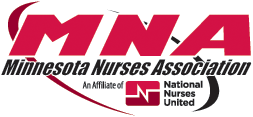By Mathew Keller, RN JD
Regulatory and Policy Nursing Specialist

Regulatory and Policy Nursing Specialist
In a famous 1863 lawsuit involving landlord rights, Graves v. Berdan, a New York landlord sued a tenant for failing to pay his rent— for leased space in a building that had burned down. Surprisingly enough, the legal precedent at that time required tenants to continue paying rent even after the space being leased ceased to exist.
Such is the power of landlords. They grant their tenants certain rights and uses of property through the provisions of a lease. However, leases also create obligations for tenants – for example, an obligation to pay rent, an obligation to mow the lawn, an obligation to not destroy the premises; or, in the case of the tenant of Unity Hospital, Allina Health, an obligation to “operate a hospital for the benefit of, and open to, all residents of the community upon equal terms” and to “use the leased premises for a public hospital,” according to the terms of its lease with the North Suburban Hospital District Board.
Allina Health has not met these terms. The moment it began to shift its profitable services to Mercy Hospital, Allina ceased to “operate a hospital for the benefit of, and open to, all residents of the community upon equal terms.” The moment it began to implement its “one hospital two campuses” vision, with the end goal of Unity Hospital operating under Mercy Hospital’s license, Allina Health ceased to “use the leased premises for a public hospital.”
What is a landlord to do when its tenant is not meeting the terms of the lease? Reasonable minds would likely agree that eviction is in order. Indeed, the terms of the North Suburban Hospital District Board’s lease with Allina Health provide for that as well, allowing the Board to “declare a forfeiture of this lease… and re-enter into possession of the leased premises and remove all persons therefrom” in the event that Allina “defaults… in the observance or performance of any of the Hospital’s… covenants, agreements, or obligations” (such as the obligation to operate the hospital for the benefit of the community) under the lease.
When a community-owned hospital is operated by a corporation that has failed to live up to its end of the bargain, as Allina surely has done, then it’s time to force the corporation to shape up or ship out. The North Suburban Hospital District Board has that power — it could threaten to declare a forfeiture of the lease at any time. Unfortunately, the District Board has chosen instead to allow Allina to escape accountability as well as escape accountability itself through its recent vote to dissolve. Thankfully, the wheels of justice have turned quickly and local residents had their day in court and prevented the Board’s dissolution for the time being.
The community built the hospital, they’ve put tens of millions of dollars into the hospital, they own the hospital, and now they’re being fleeced by Allina as well as their own Hospital District Board.
Landlords have a lot of power. It’s time for the Hospital District Board to stop kowtowing to Allina Health and instead use their power to hold Allina accountable to its obligations under the terms of the lease. And if the District Board is unwilling to do so, it’s time for them to ship out themselves.
Save our hospital.



